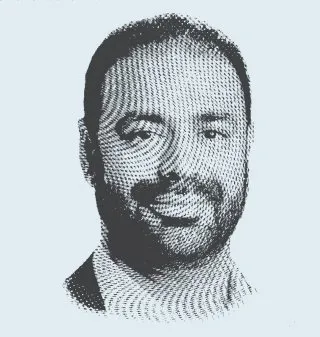The future of Hezbollah is unclear, as the divergent signals suggest that the direction it will take has yet to be decided.
Secretary-General Sheikh Naeem Qassem and Hezbollah parliamentary deputies have begun to place greater emphasis on national political issues in their statements, stressing the need to elect a president and the party’s commitment to the Taif Agreement.
We all know that after having long rejected the idea, the party agreed to separate Lebanon from Gaza and to support Palestine "through other means" - a concession without which there would have been no ceasefire. Hezbollah also agreed to disarm, though it is publicly claiming to interpret the disarmament to encompass only the region south of the Litani River and no parts of the country to its north. The fact is that these concessions deprive Hezbollah of its raison d'etre as a "resistance" force, or at the very least, they oblige it to reinvent its raison d'etre theoretically and in practice.
In betting on Hezbollah’s transformation from a militant party to a political party, it is difficult to ignore the grave hardships that the Shiite community, the party's immediate base, has endured because of the "support war" and the destruction left by Israel’s crimes. Although signs to this effect have yet to emerge, that suffering could pressure Hezbollah to give up its destructive military role.
Such pressure could be compounded by the limited financial capabilities of both the party and Iran, which were evident from the modest compensations that Sheikh Qassem announced. Moreover, this issue also creates the need for a faction that speaks to social and economic pains that has hit the party’s community particularly hard though they are also felt by all the Lebanese.
There are now opportunities - albeit born of tragedy, as is often the case in our region - that allow for envisioning a shift through which the party comes to represent an immense segment of the country’s population and advocates for its interests. Besides the war itself, with the experiences it encompassed and the political repercussions it will probably give rise to, there could be a shift in Iran itself. It too may be compelled to reconsider and perhaps abandon its old policies in favor of greater focus on domestic issues. We have just seen the war in Syria cut off Tehran's land route to Lebanon, as the Syrian Democratic Forces (SDF) took control of the Syrian-Iraqi border.
Another reason to expect a serious change is its new leadership. The man who is now at the head of the party does not have the previous leader’s charisma, which is not needed in a country seeking normalcy and to avoid being associated with disaster and mass pledges of allegiance.
On the other hand, however, there are also factors pulling in the opposite direction. The setbacks Iran has suffered in Syria, after those of Lebanon, will not necessarily push the country to abandon its regional role. In Qassem’s latest speech, he stressed that the party was still "standing by Syria," which has been interpreted to mean that it is ready to support the regime militarily once again, though the actual military impact of its intervention this time is another matter.
On top of that, in that same speech, Qassem insisted that the party’s disarmament would be confined to the regions south of the Litani River, as did all of the statements on the matter by those who speak for Hezbollah and the Resistance Axis. This highly contentious issue could lead to domestic strife and even spark clashes beyond Lebanon.
The party also continues to withhold the truth from its audience and espouse the same old boastful rhetoric about victories. This might be partly explained as an effort to improve its negotiating position and enlarge its share of the sectarian regime in the future, but it surely contributes to aggravating tensions and hindering the transition to social stability.
If it takes the worst choices available to it, the party will exploit the gaps, deficiencies, and funding issues complicating the deployment of the army and multinational peacekeeping forces in the south, and the obstacles those issues could engender.
After all, the shift that is hoped for will not be easy. A change in substance, not just form, is required, as is a transformation of the party’s culture. In 1992, the party took a step that was seen to reflect "Lebanonization" and "change," accepting to take part in the electoral process. However, Qassem, when he was deputy secretary-general, later explained that this stance was taken because of a Fatwa issued by Iran’s Supreme Leader Khamenei.
The party did not take long to prove that talk of its "Lebanonization" was a farce. In addition to continuing to build its arsenal, it embroiled the country in two brief wars with the Israelis in the second half of the 1990s. These conflicts were followed by the crimes committed in 2005, the 2006 war, its 2008 incursion, and then its intervention in Syria. That was before many other tragedies that include the "support war," the worst and most violent of them all.
For these reasons, "change" will not be serious if it mirrors the party’s so-called "Lebanonization" in the 90s, which saw party members enter parliament with legislation the last thing on their minds. Genuine change entrails transforming into a political party and disbanding its militia.
Overall, this "second Hezbollah" remains largely obscure, and it is made more obscure by the likelihood that the next phase will also be very obscure, not just in Lebanon but throughout the Levant.












